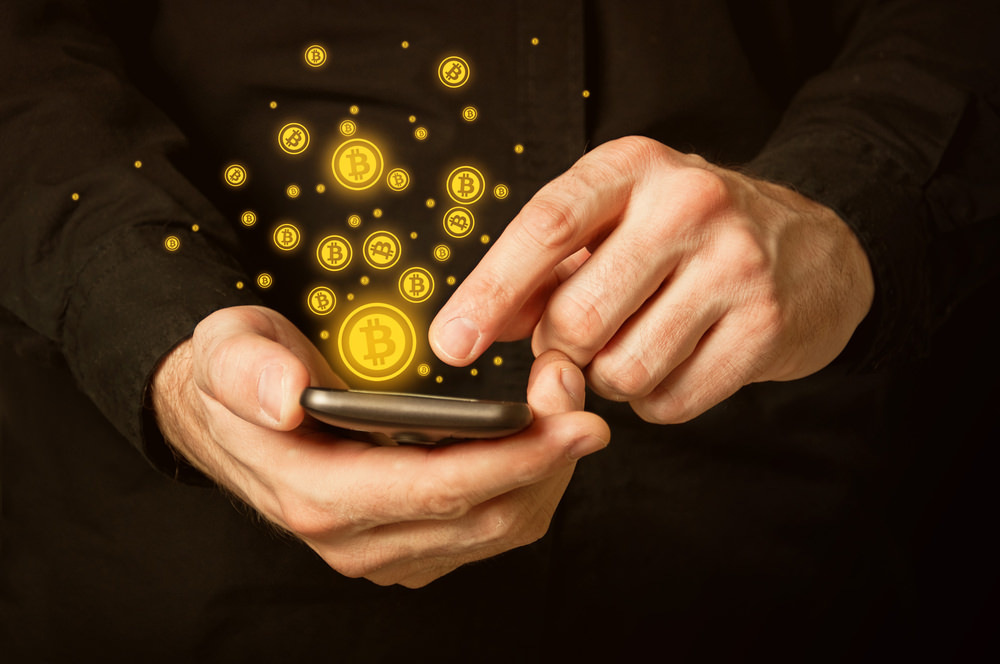
How Bitcoin Smashes Mobile Payments Barriers
Open Letter to the Mobile World Congress, Barcelona 2014, from Jon Matonis, Executive Director, Bitcoin Foundation
I have worked in the currency, payments, and cryptography business for over 20 years, at businesses including Visa, Sumitomo Bank, VeriSign, and Hushmail.
The technological developments now occurring in peer-to-peer payments and online distributed trust ledgers will shake the current financial system to its core. Ultimately, this will be a good thing for society and, therefore, it should not be feared or resisted.
Of course, I am speaking about the bitcoin network and the bitcoin monetary unit which runs over that network.
If I had to describe bitcoin in just three words, I would say it is: Money Without Government.
Alternatively, I could say bitcoin is Survivable Digital Scarcity. In just five short years, bitcoin has unequivocally demonstrated that we don't need kings to coin our money and we don't need central banks issuing debt-based paper notes and deciding what our money should be. Money is anything we collectively determine it to be.
Ladies and gentlemen, the fiat emperor has no clothes. The illusion of legal tender has been exposed.

clothes
Just like the untainted child in the Hans Christian Andersen fairy tale, some of us are beginning to notice. It’s not the illusion itself that so offends our sensibilities, but more the notion that a competitive illusion is not to be permitted.
If a free market illusion voluntarily agreed to from the bottom up is so desperately feared, then the protectors of the state-sanctioned illusion must not have the most benevolent of motives in store for us.
At some level, all money is an illusion that we share and as such we must be free to determine that shared illusion from the bottom up, rather than have it dictated to us from the top down. Even with gold, the most tangible of all monies, it is estimated that 95% of its value is attributed to its illusory monetary exchange properties.
With a bitcoin monetary unit, seigniorage becomes a thing of the past. And, as users of the monetary unit, we are not insulted by the insidious practice of having zeros added to the left of the decimal point. Bitcoin is infinitely sub-dividable to the right of the decimal point, as it should be.
are not opposed to a shared illusion, they only want it to be their shared illusion.
Just as the copyright world is being radically transformed by distributed file-sharing protocols like BitTorrent, the legal tender facade will be transformed by decentralized survivable cryptocurrency because, in the end, legal tender is simply an unearned copyright privilege over money.
Additionally, most governments are sorely mistaken when it comes to bitcoin because, in order to thrive, bitcoin requires only market-based legitimacy – not government-sanctioned legitimacy. This is enormously frustrating for them and it is something not witnessed on this scale before.
OK, now that we have placed bitcoin in that proper monetary context, we can turn our attention directly to mobile.
For some in the mobile payments space, the following will be difficult to hear.
Traditionally plagued by a variety of barriers, mobile payments have seen lacklustre adoption around the world. This is particularly true in the developed economies, where a trio of competing interests breeds perpetual infighting and stagnation.
The holy trifecta in mobile payments includes governments, banks, and operators – each trying desperately to secure their own piece of the coveted payments pie, exerting maximum influence along the way. This, in my opinion, has strangled mobile payments progress and adoption.
Fortunately, bitcoin and its decentralized network bypass these three quarrelling constituencies.
First, the bitcoin monetary unit is nonpolitical in nature and it doesn't require an intermediary for issuance, authorization, clearing, and settlement functions. Those are performed via the public block chain.
Second, bank accounts and card networks are not required for clearing bitcoin transactions, eliminating the need for those silly dongles and awkward squares.
Third, since bitcoin wallets can run as standalone apps on smartphones utilizing QR codes, specialized accounts with operators become unnecessary, as does specialized hardware at the point of sale.
Guess what? These point-to-point bitcoin-powered mobile payments are already happening today. Furthermore, they are happening over your networks or at the very least over optional Wi-Fi.
Bitcoin is the quintessential disruptor, for not only does it disrupt established primary-level players in the field of payments, like Visa, MasterCard, and PayPal, but it elegantly disrupts the very nature of monetary authority. Bitcoin is disruption within disruption.
Money naturally operates like a virus and that makes bitcoin potently viral. It is viral cubed, in fact – money on the Internet with a network effect. A monetary unit does not stop expanding until it runs into artificially delineated boundaries or achieves widespread dominance.
An undisputed early advantage will be bestowed upon those that recognize and harness bitcoin’s transformative role in mobile.
It is my sincere hope that we will never again have to sit through a “disruption in payments” conference without hearing the phrase bitcoin.
Thank you.
Jon Matonis
To find out more about bitcoin, see the CoinDesk guide.
Disclaimer: The views expressed in this article are those of the author and do not necessarily represent the views of, and should not be attributed to, CoinDesk.
Mobile payments image via Shutterstock
DISCLOSURE
The leader in news and information on cryptocurrency, digital assets and the future of money, CoinDesk is a media outlet that strives for the highest journalistic standards and abides by a strict set of editorial policies. CoinDesk is an independent operating subsidiary of Digital Currency Group, which invests in cryptocurrencies and blockchain startups. As part of their compensation, certain CoinDesk employees, including editorial employees, may receive exposure to DCG equity in the form of stock appreciation rights, which vest over a multi-year period. CoinDesk journalists are not allowed to purchase stock outright in DCG.



